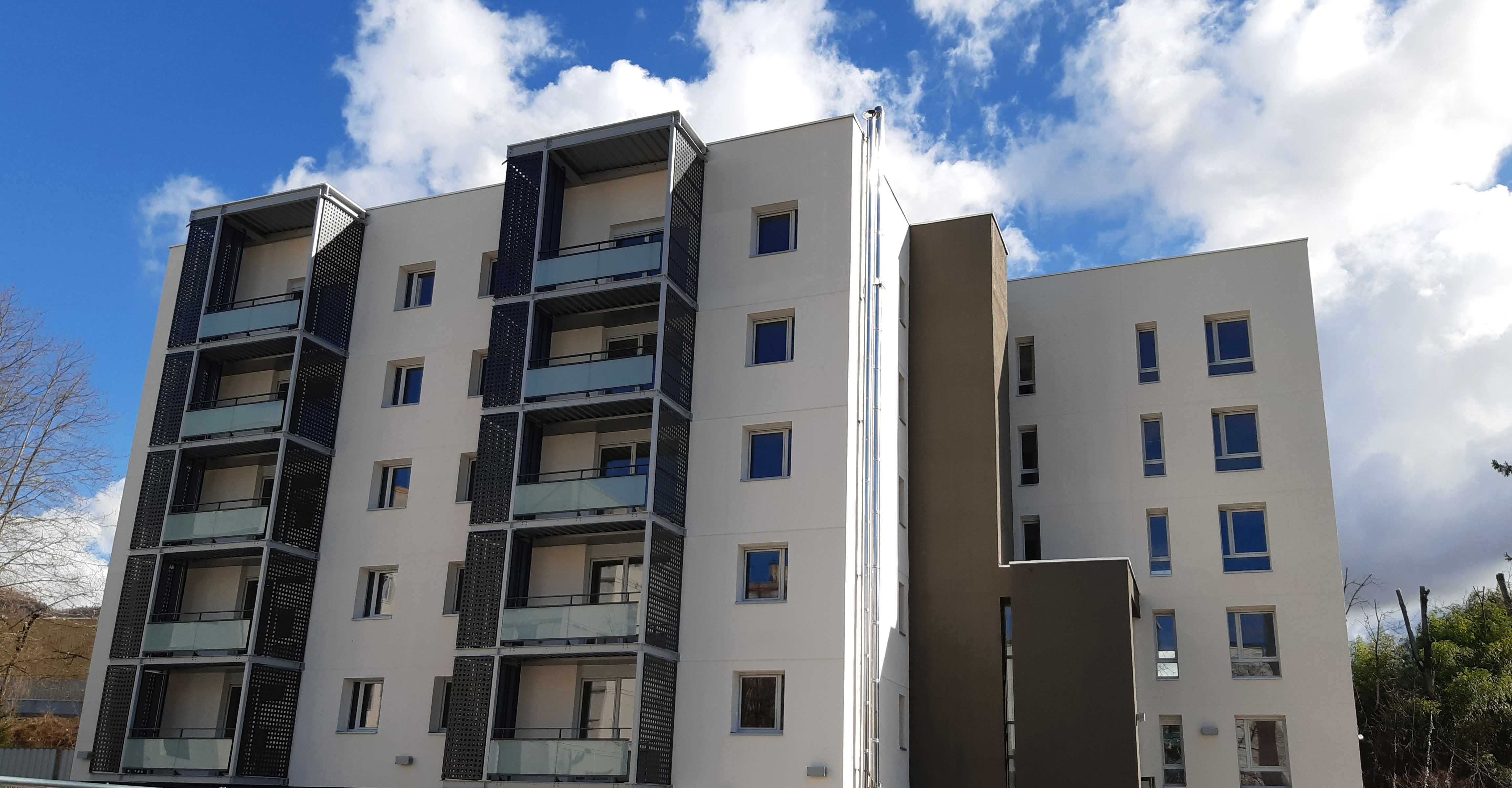The five buildings from the 1960s in the Baltiss neighborhood in Voiron had aged very visibly. Weathered concrete, battered facades and no trace of energy efficiency. It was clear to the owner, the French social housing company Plurales Habitat, that all 140 apartments in the multi-story buildings needed to be thoroughly renovated. Also, because the demand for affordable housing in Voison is pressing: The number of residents is rising. Around 70 percent of them are entitled to social housing. At the same time, the construction measures must not exceed the budget of a social enterprise, and the investments must pay off sustainably over decades for both tenants and owners.
Creating affordable housing
This is the task facing cities all over Europe: creating affordable housing that people on low incomes can also afford. One successful way of doing this is to renovate outdated social housing to make it more energy-efficient - as is the case in Voiron. The small town with a population of around 20,000 is idyllically located in the southeast of France, close to the city of Grenoble and framed by mountains to the south and east. It is a landscape with quality of life, but for buildings it is a challenge. The climate tends to be warm, but it rains a lot and often. Voiron records high rainfall throughout the year, even in the driest months. For older homes, the consistently high humidity is a challenge.
The social developer's goal was therefore to improve the comfort and quality of life of the residents through energy-related work. The entire building frame was renovated, as well as the water heating and heating systems. Plurales Habitat, the social developer, decided to use Ytong Verti 20 and Compact 15 solutions for the insulating envelope of the buildings. Ytong Compact 15 blocks are 150 mm thick blocks for non-load-bearing and fire-resistant walls that provide additional insulation.
Low energy consumption thanks to autoclaved aerated concrete
Autoclaved aerated concrete (AAC) also has a very good insulation coefficient with a higher quality than conventional concrete. And the lightness of AAC made it possible to carry out a fundamental renovation without interfering with the existing building structure and statics. In total, 2,000 square meters of facade walls were upgraded using Ytong Verti 20 and Ytong Compact 15.
Xavier Rémy, Pluralis Habitat's rehabilitation manager, explains, "In Baltiss, the choice of materials was particularly important because it allows the houses to be designated as low-energy buildings. I think autoclaved aerated concrete is a material that needs to be reused for other projects."
But Plurales Habitat is about more than that in the Baltiss neighborhood. The completely renovated facades now look aesthetically pleasing and modern. At the same time, the five buildings are now more accessible and the safety conditions are up to date. A successful project - for the owner as well as for the tenants.
